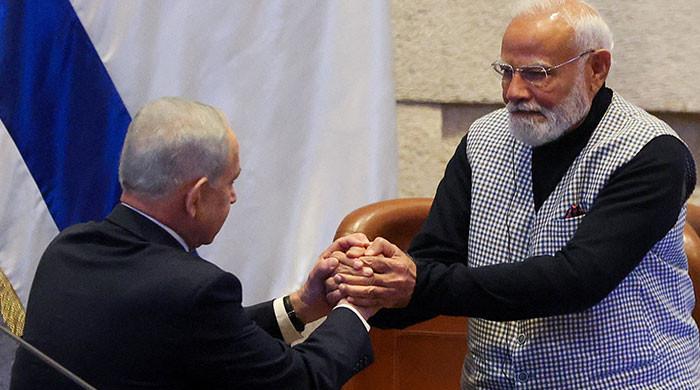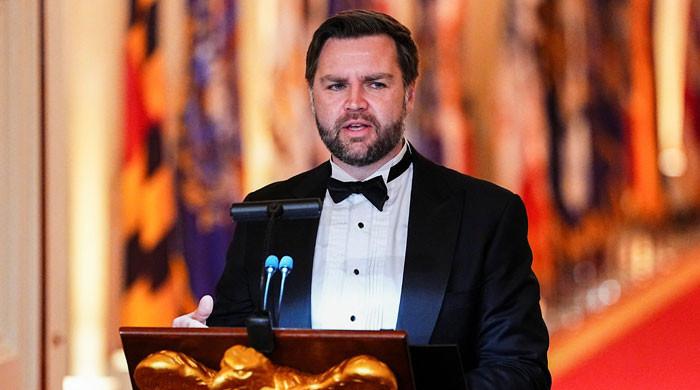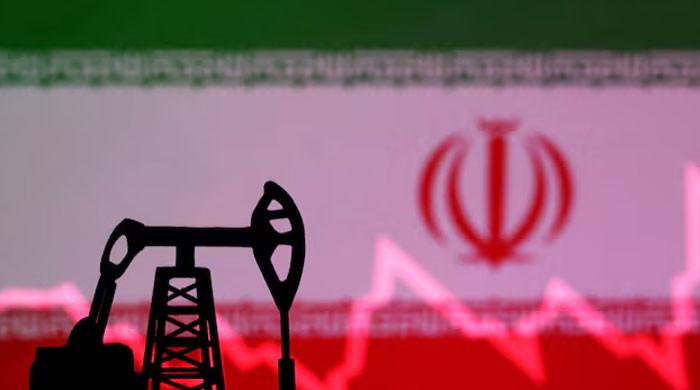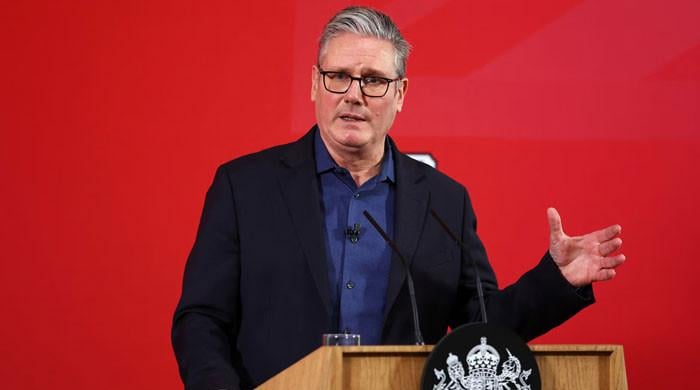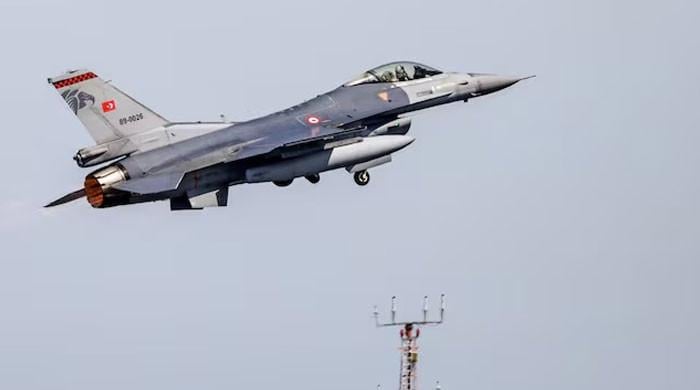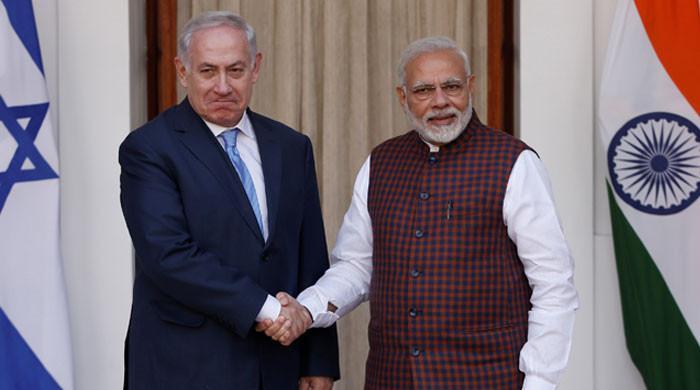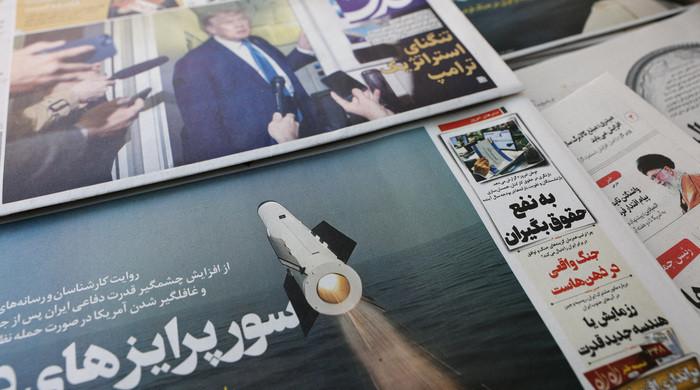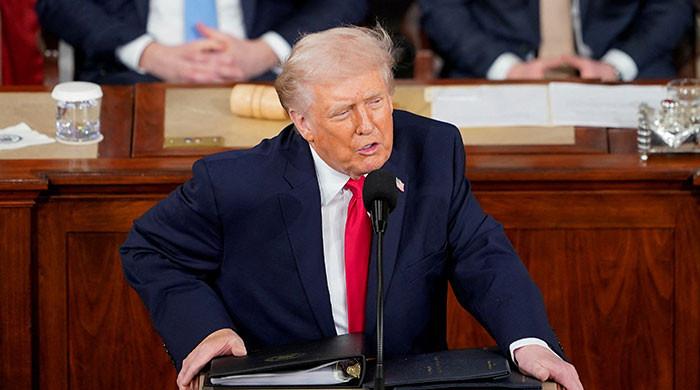10 events that defined 2025
Year's highlights include US President Donald Trump's return to power, ceasefire in Gaza war
November 25, 2025
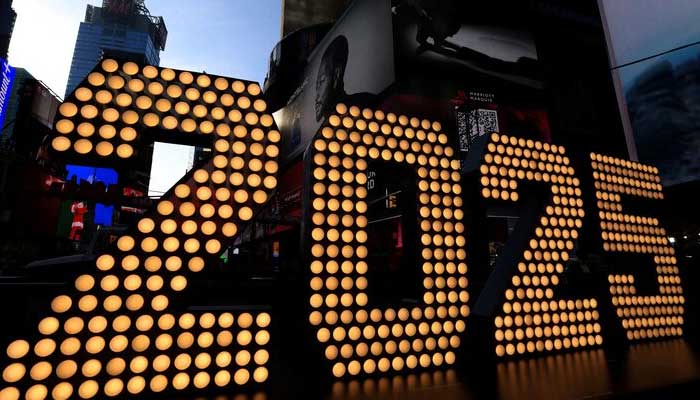
PARIS: From US President Donald Trump's return to power to a ceasefire in Gaza and massive investments in artificial intelligence: Here are 10 events that defined 2025.
Trump presidency 2.0
A protectionist offensive. Mass deportations of undocumented immigrants. Dismantling entire sections of the federal government.
Since his return to the White House for a second term in January, Republican President Trump has targeted adversaries, deployed the National Guard in Democrat-voting cities, worked to intimidate the media and fought against diversity and inclusion programmes.
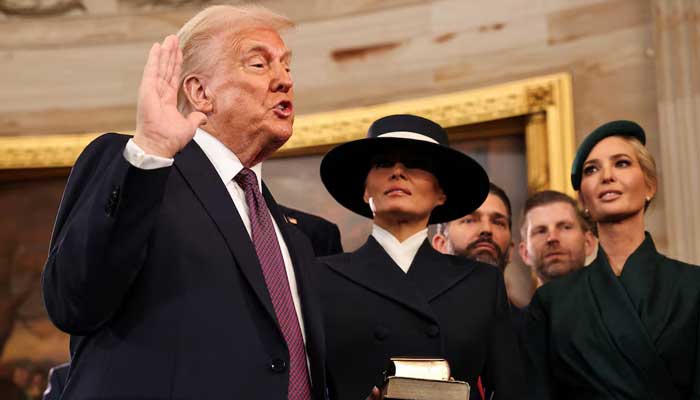
He has also launched extensive diplomatic efforts, with mixed results.
And polls suggest Americans are increasingly disgruntled on economic issues — particularly the cost of living.
Stinging defeats in local elections have put his party in a delicate position for midterm elections due next autumn.
Gaza truce
US pressure led to a ceasefire between Israel and Hamas, two years after a devastating war began in the Gaza Strip.
The truce allowed for the return to Israel of the last surviving hostages and most of the bodies of the deceased, in exchange for the release of Palestinian prisoners.
It also enabled an increased flow of humanitarian aid into Gaza, although still nowhere near enough to meet the territory's needs, according to the UN and humanitarian NGOs.
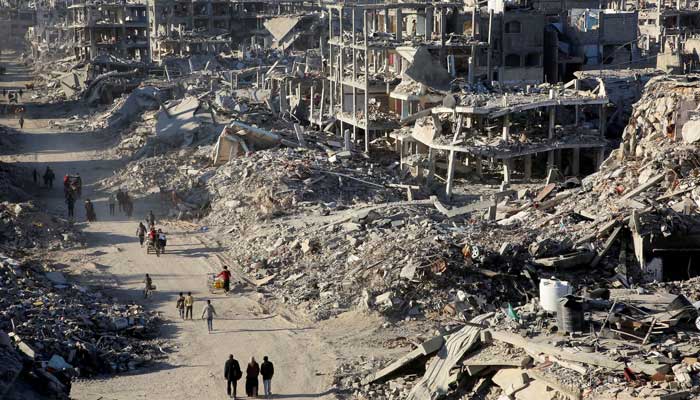
But negotiating the next steps in Trump's peace plan — particularly the disarmament of Hamas — is proving delicate.
Israel has carried out several deadly airstrikes in Gaza in recent weeks, which it claims were in retaliation for Hamas attacks.
Regional tensions also persist, with continuing Israeli strikes on Hezbollah in Lebanon.
Israel, with the help of the US, also launched raids against Iran's nuclear facilities during a 12-day war in June.
In September, Israel targeted Hamas officials in an unprecedented attack in Qatar.
Unfruitful Ukraine talks
Trump's arrival in the White House energised efforts to end the war in Ukraine, sparked by Russia´s full invasion in 2022.
Trump's sympathies have flipped repeatedly between Ukrainian President Volodymyr Zelenskiy and Russian counterpart Vladimir Putin, with Kyiv fearing it could be forced into a deal on Moscow's terms.
In February, Trump berated Zelenskiy in the Oval Office, accusing him of risking World War III and disrespecting the American people. As direct Russia-Ukraine talks led nowhere, Trump in August hosted Putin for a high-stakes summit in Alaska that ended early, leaving Washington accusing Moscow of not being serious about ending the war.
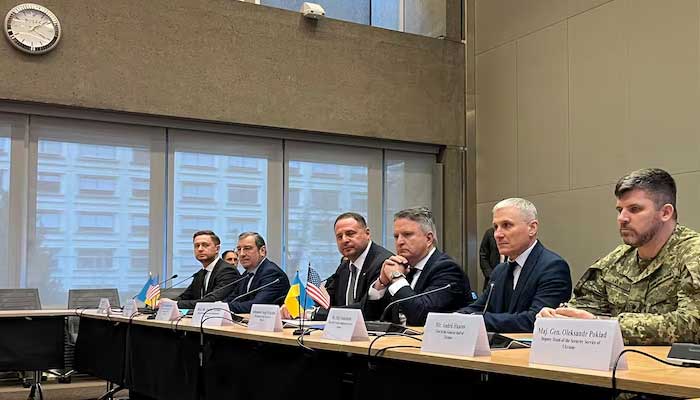
Trump later hit Russia with his first major package of sanctions.
However, international negotiations did take place in late November based on a draft US plan, the initial version of which was considered by Kyiv and its European allies to be largely favourable to Moscow.
Russian forces, meanwhile, slowly drove forward at massive human and financial cost to both sides, and they battered Ukrainian cities with record numbers of missiles and drones.
Trade war
Trump imposed waves of tariffs on imports and on entire industries deemed strategic — such as steel, aluminium and copper — sparking a trade dispute that shook the global economy.
As targeted countries considered or implemented retaliatory measures, tough negotiations led to many deals, including with the European Union and China.
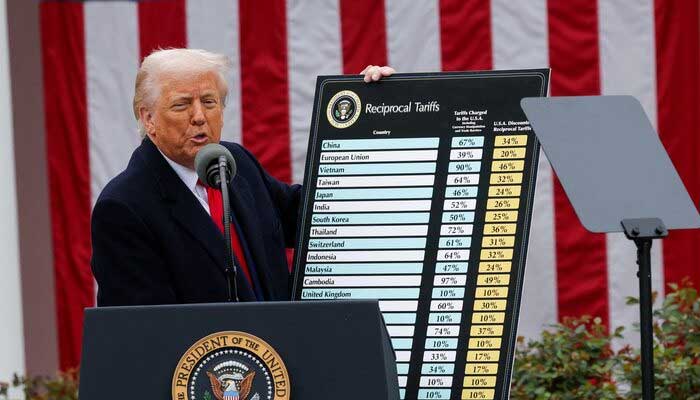
In their own backyard, US officials are still negotiating with Mexico but talks with Canada were suspended after a Canadian province funded an ad criticising the tariffs.
Under pressure to lower the cost of living for Americans, Trump decided in mid-November to cancel tariffs on some food products, such as imported coffee and beef.
New pope
Robert Francis Prevost, aged 69, became the first American pope on May 8 following the death of his predecessor Francis, whom he had long advised.
White smoke rose above the Sistine Chapel to announce the election of the 267th head of the Catholic Church after a less-than-24-hour conclave.
The Chicago-born clergyman, who spent nearly 20 years as a missionary in Peru and eventually obtained citizenship, took the name Leo XIV.
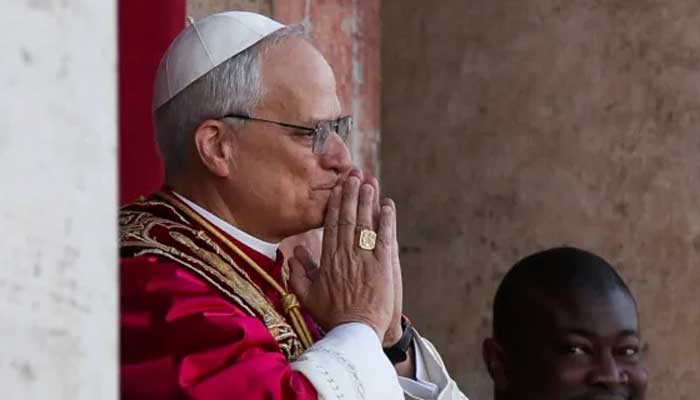
He has followed in the footsteps of his Argentine predecessor by focusing on the poor, migrants and the environment.
He has also offered reassurances to conservative circles by ruling out — at least in the short term — the ordination of women as deacons and the recognition of same-sex marriage.
Gen Z uprisings
Mass movements spearheaded by the under-30s arose across Asia, Africa and Latin America to fight against poor living standards, social media censorship and elite corruption.
They enjoyed mixed success — in Morocco, for example, the government promised social reforms but more than 2,000 protesters now face prosecution.
In other countries, the protests transformed into a broader challenge to power after they were violently repressed. But Nepal's Maoist PM KP Sharma Oli and Madagascar's president Andry Rajoelina were forced from office.
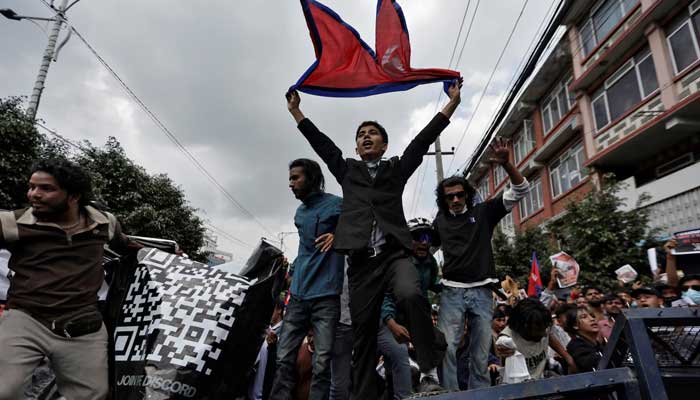
Young people featured prominently in post-election protests in Tanzania, which were brutally suppressed.
The pirate flag from the manga "One Piece" (a skull and crossbones wearing a straw hat) is often displayed by protesters and has spread on social media to become a symbol of the fight against oppression across continents.
AI boom
Technology giants and investors have spent ever-increasing sums to finance the rapid growth of AI.
AI-related spending is expected to reach roughly $1.5 trillion in 2025 and $2 trillion next year, according to US advisory firm Gartner.
The market's enthusiasm briefly drove chip giant Nvidia's valuation beyond $5 trillion. But the markets fear a speculative bubble around the technology. And there are broader concerns.

The technology stands accused of fuelling misinformation, copyright lawsuits are mushrooming, and many companies have cited AI adoption as an explanation for mass layoffs.
OpenAI faces a lawsuit from the parents of a California teenager who killed himself, alleging its chatbot ChatGPT offered advice on how to carry out his plan.
The company said it had strengthened its parental controls, while California has enacted legislation regulating chatbots.
Louvre heist
On October 19, thieves dressed in workers' vests used a furniture ladder to get into the Louvre Museum in Paris. They fled on scooters with Crown Jewels valued at €88 million ($102 million) though they dropped a diamond-encrusted crown on the way.
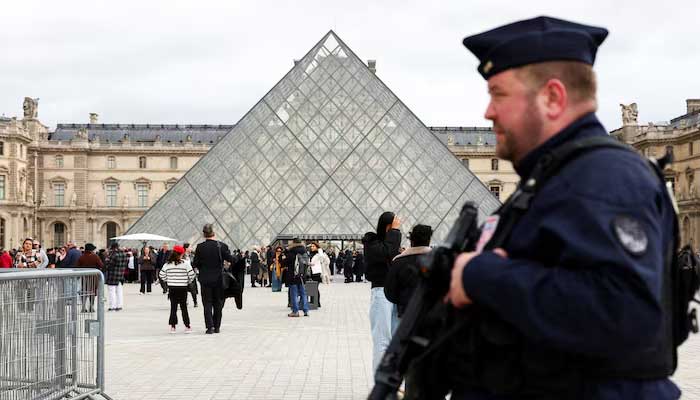
The audacious heist made headlines worldwide and sparked a debate over security at the world's most-visited museum. Three men suspected of being part of the raid were charged and jailed, but the stolen treasures have not been recovered.
US strikes Venezuela
Washington has deployed a significant military presence off the coast of Latin America since August, officially to combat drug trafficking bound for the US.
More than 20 strikes have been carried out in recent weeks in the Caribbean and the Pacific against vessels the US says are suspected of transporting drugs, leaving several dozen people dead.
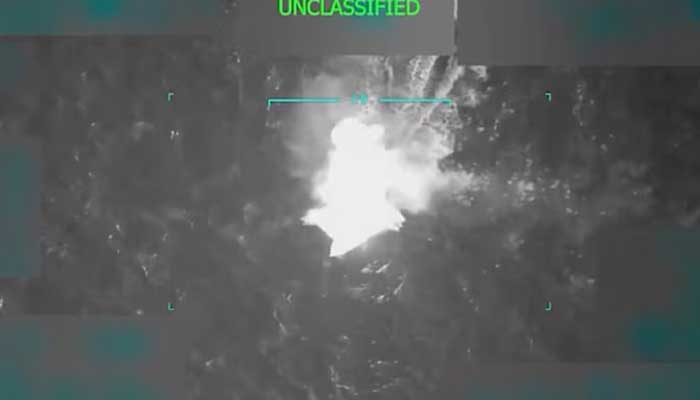
The US Justice Department insists the strikes were "lawful" and rejected accusations by a senior UN official that they were "extrajudicial".
The campaign has sharply escalated regional tensions, especially with Venezuela, which views the attacks as a pretext to topple President Nicolas Maduro and seize the country's oil reserves.
Washington accuses Maduro of heading a cartel, and US authorities are offering a $50 million reward for his capture.
Record-breaking weather
While Vietnam had deadly floods, powerful storms lashed the Caribbean and the Philippines.
Extreme weather events are becoming more frequent, more deadly and more destructive due to climate change fuelled by human activity, according to scientists.
Hurricane Melissa, one of the most powerful ever to hit the Caribbean, devastated entire regions of Jamaica and flooded Haiti and Cuba.
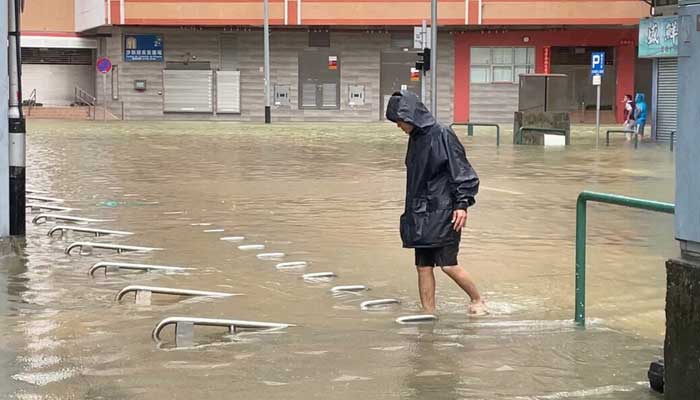
In Southeast Asia, the Philippines was struck by Typhoons Ragasa, Kalmaegi and Fung-wong within the space of two months, while Vietnam was devastated by storms, floods and landslides.
Temperatures soared and wildfires intensified in Europe, with a record number of hectares burnt during the summer. The French Mediterranean coast experienced its worst fire in 50 years.
In the United States, fires sparked by lightning led to the closure of the North Rim of the famous Grand Canyon in mid-July for the remainder of the tourist season.




